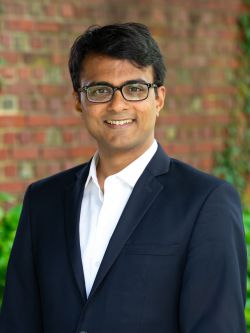Aditya Sood

Research Areas
Short Bio
Professor Aditya Sood holds a joint appointment in MAE and the Princeton Materials Institute (PMI). His research interests are in the areas of nanoscale thermal transport, nanoelectronics, and ultrafast science. He is broadly interested in visualizing how materials behave on fast timescales in response to external stimuli, and understanding how this dynamic behavior can be controlled for applications in energy-efficient computing, energy harvesting, and energy storage. Some questions of interest include: Can we actively control heat flow at the atomic scale? Can we make atomic-scale "movies" of electronic devices and image short-lived transient states in materials? Can we use external means to modulate ion transport in energy-storage materials? Can we create new "non-equilibrium” states of matter through ultrafast excitation? The group enjoys working on interdisciplinary problems in energy and computing, with a core emphasis on understanding physical phenomena. In addition to performing experimental work at Princeton, the group is an active user of advanced electron and X-ray sources at national labs across the country.
Professor Sood received a Ph.D. from Stanford University in Materials Science and Engineering, and a bachelor’s degree from the Indian Institute of Technology (IIT) Kanpur. He was briefly a postdoc in Electrical Engineering at Stanford, after which he was a postdoc and Research Scientist at the Stanford Institute for Materials and Energy Sciences (SIMES) at Stanford and SLAC National Accelerator Laboratory. He joined the Princeton faculty in January 2023.
His awards include the ACS PRF Doctoral New Investigator Award (2023), the Early Career Award from the AVS Nanoscale Science & Technology Division (2022), the MRS Postdoctoral Award from the Materials Research Society (2022), the LCLS Young Investigator Award from SLAC National Laboratory (2021), the Gold Graduate Student Award from MRS (2017), and the Batra Gold Medal from IIT-Kanpur (2011). He has also received a Princeton Engineering Commendation for Outstanding Teaching (2023).